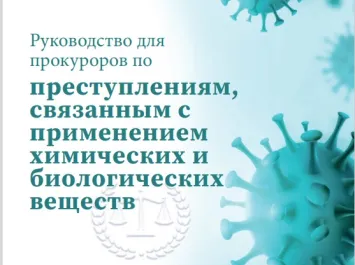As a key partner country in the European Union (EU) Chemical, Biological, Radiological and Nuclear (CBRN) Risk Mitigation Centres of Excellence (CoE) Initiative, Serbia has played a pivotal role in the South East and Eastern Europe (SEEE) region, by actively participating in the initiative's projects and activities. Since joining as one of the initiative's partner countries in its inception in 2010, Serbia's role extends beyond mere participation — it embodies a profound dedication to the cause of CBRN safety and security. Over the past 14 years, Serbia has actively cooperated within the framework of the initiative and has also implemented various regional projects, contributing significantly to the overarching goals.
Serbia's commitment to CBRN safety and security is evident in the formal nomination by the government of the Ministry of Foreign Affairs to manage the activities of the CBRN Coordination Body. The CBRN Coordination Council, appointed by the Prime Minister of Serbia, operates under a decisive framework aimed at combating the proliferation of Weapons of Mass Destruction (WMD). Beyond administrative responsibilities, the council led by the Ministry of Foreign Affairs of Serbia, plays a crucial role in managing the inherent risks and threats posed by CBRN materials.
The Coordination Body is entrusted with managing risks and threats stemming from CBRN materials. Since its establishment, it has successfully developed and implemented two CBRN National Action Plans, showcasing a proactive and comprehensive approach to mitigating potential risks. The current CBRN National Action Plan is approved until 2025, reflecting Serbia's commitment to a comprehensive and strategic approach.
The collaboration with the CBRN National Focal Point and its deputy has been characterized by trustworthiness and productivity, reflecting a strong commitment to addressing CBRN challenges effectively. Serbia's active participation in EU-funded projects further underscores its dedication. With over 30 regional projects funded so far in the South East and Eastern Europe, Serbia has actively implemented them, contributing substantially to CBRN regional safety and security. In 2024, Serbia will initiate two new projects focusing on biosafety and biosecurity at borders and CBRN critical infrastructure security and protection. These projects mark the country's continued commitment to staying at the forefront of innovative solutions in the CBRN realm.
The success stories of cooperation with Serbia are extensive, underlining the nation's significant contributions to the goals of the EU CBRN CoE Initiative. Looking ahead, Serbia is poised to host the Round Table Meeting (RTM) of the CBRN National Focal Points of the SEEE region in 2024. This RTM will not only highlight the achievements but also identify the strategic priorities of the SEEE region, paving the way for future regional projects.
In summary, Serbia's exemplary role in CBRN risks mitigation stands as a testament to its dedication, collaboration, and proactive approach. As a synchronising force within the EU CBRN CoE Initiative, Serbia's contributions over the past decade have enhanced its national safety and security and have had a positive and lasting impact on the broader SEEE region.
Background information
The EU CBRN CoE Initiative is a global Initiative funded and implemented by the European Union as part of its goal to promote peace, stability and conflict prevention.
The aim of the Initiative is to mitigate risks and strengthen an all-hazards security governance in Partner Countries of the EU following a voluntary and demand-driven approach. The EU support is provided to implement a wide range of CBRN risk mitigation activities including needs and risk assessments, national and regional action plans, capacity building activities, legal framework reviews, tabletop and real-time (including cross-border) field exercises, inter-regional exchange of best practices and lessons learnt.
Funded and implemented through the Neighbourhood, Development and International Cooperation Instrument (NDICI) – Global Europe, the Initiative is led by the European Commission’s Service for Foreign Policy Instruments (FPI), in close coordination with the European External Action Service (EEAS). The European Commission's Joint Research Centre (JRC) provides technical support to Partner Countries, while the United Nations Interregional Crime and Justice Research Institute (UNICRI) ensures a coherent and effective national, regional and international cooperation. Other relevant international and regional organisations and experts also contribute to the Initiative, which, involves 64 countries in 8 regions of the world, represents the EU’s largest civilian external security programme.



